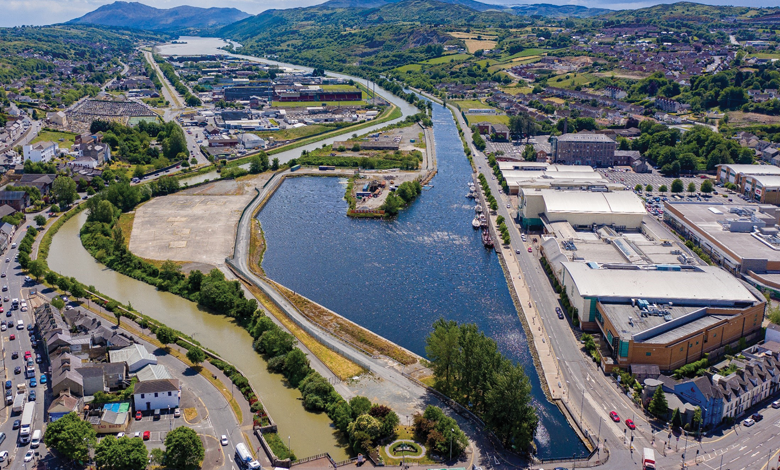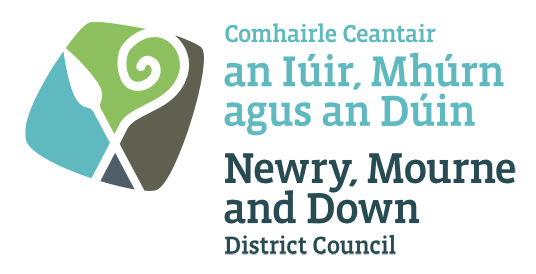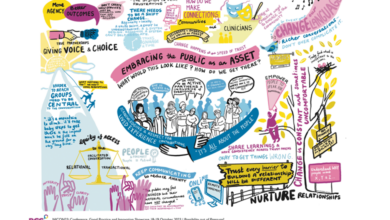Newry, Mourne and Down: Delivering improvements to health and wellbeing

With its mission of a healthy and sustainable district, which provides better economic, environmental and social outcomes for all, Newry, Mourne and Down District Council is blessed with both significant natural assets and an enviable level of outside investment.
Key projects ranging from the multi-million pound Newry City Park to the Be Active for Life programmes in local leisure centres are being delivered to equip and encourage its citizens to improve their health and wellbeing by becoming more active.
Improving the health and wellbeing of its approximately 181,363 residents and reducing health inequalities has been a key strategic objective for the Council area, which spans the south east of Northern Ireland, bordered by a 150km coastline. Overlooked by three Areas of Outstanding Natural Beauty, it is an area now proudly home to the Mourne Gullion Strangford UNESCO Global Geopark.
As per the Council’s Corporate Plan (2021-2023), to “continue to improve the health and wellbeing of everyone in the district and reduce health inequalities” and to “enable and support people to engage in inclusive and diverse activities in their community” were two key drivers for investment into a series of projects. This resulted in more people participating in targeted health programmes and facilities to encourage more active lifestyles. Improving the health and wellbeing of everyone in the district will also remain a key priority of the new Corporate Plan being delivered for 2024 to 2027.
By way of a stocktake, and in identifying the needs of the district, Newry, Mourne and Down District Council has worked with partners and stakeholders in the public, private, community and voluntary sectors to create key strategies which have shaped the direction of investment. These include a Sports and Physical Activity Strategy 2024-2029, Play Strategy Review, Sports Facilities Strategy and Sports Hub Review. Through these strategies, key areas for enhancements have been identified and the Council will be working with external funders to support the projects.
One key project is the development of Newry City Park, to be located on a 15-acre site at the Albert Basin within the heart of Newry city centre.
The Council’s Outline Business Case for Newry City Park was approved by the Department for Communities and a Contract for Funding was issued in December 2023 — opening access to £16.2 million from the Executive’s City Deal Complementary Fund. The Council is providing £2.4 million of match funding to deliver the 15-acre City Park as part its Newry City Centre Regeneration Programme of works, and it is anticipated a planning application for the park will be submitted in the coming months.
The park is set to provide a state-of-the-art facility encompassing a sensory garden, urban sports areas, an inclusive play park, water sports facilities, an events plaza and woodland trails. With an absence of any such provision currently within the city, this facility will significantly attract footfall from across the district and beyond whilst increasing participation amongst an array of sport and leisure amenities.
With more of our residents spending a greater amount of time outdoors, the Council in conjunction with the Department of Agriculture, Environment and Rural Affairs (DAERA), Sport NI and the Woodland Trust have invested £1.9 million from 2017 to the present day in creating and updating 13 walking trails, covering 40km.
The trails are located in Glendesha Forest in Forkhill, Seaforde Plantation Wood, Corry Wood and Bunkers Hill near Annsborough, Drumkeeragh Forest, Windmill Hill/Lough Park near Ballynahinch and Ballynahinch Rugby Club, Glasswater Wood and Tobar Mhuir Wood near Crossgar, St Patrick’s GAC in Saul, Aughrim Hill Trail near Kilkeel, Tievenadarragh Wood near Drumaness, and Daisy Hill Wood in Newry. 263,364 visitors accessed the trails in 2023/24.
The Council’s Play Strategy (2017) was established to create an effective strategic framework for decision making in relation to the development, maintenance and roll-out of play opportunities across the district.
Following a £3.2 million investment between 2017-2024 by the Council and the Northern Ireland Rural Development Fund (DAERA), six new play parks have been developed and over 30 existing parks have received significant enhancements which has increased the Council’s Play Value by 23 per cent amongst low value play parks and 23 per cent also amongst mid value play parks.


Play Strategy Review
Newry, Mourne and Down District Council recently completed a Play Strategy Review, which has identified another 14 parks that will be upgraded over the next four years, demonstrating both Council and funders’ clear commitment to supporting the Child’s Right to Play as articulated in the UN’s Convention of the Rights of the Child, Article 31.
The Sports Facility Strategy
The Sports Facility Strategy commissioned in 2017 also identified sporting facilities throughout the district which required upgrades. Having completed this assessment, £1.8 million was invested both directly by Council through Capital Projects and via the Council’s Financial Assistance Grants, to upgrade facilities. On completion of the Sports Facilities Strategy, the Council carried out a Multi Sports Hub Review in 2022 addressing the need of eight sports such as association football, Gaelic games, rugby and athletics.
A projected budget of £3.5 million has been set to deliver large multi-sports hubs in each of the seven district electoral areas, for example The Donard Park Project in Newcastle and Jennings Park multi-sports Project, Newry.
Be Active Programme
In terms of targeted, measurable health improvements, Newry, Mourne and Down District Council deliver a bespoke programme called Be Active for Health and Be Active for Life.
The latter is a Newry, Mourne and Down District Council initiative which delivers physical activity classes to a broad demographic from teenagers, to parent and baby, to older and less active residents. The programme, funded fully through the Council, delivers a series of low-to-moderate intensity classes. It attracts those who are new to physical fitness or want to embark on a journey of increased movement and physical and mental wellbeing.
In relation to the Be Active for Health programme, the Council is committed to the Physical Activity Referral Scheme (PARS), a GP referred, 12 week physical activity programme which is delivered in partnership with the Public Health Agency.
Those on the programme benefit from prescribed physical activity such as walks, group-based exercise classes and gym based programmes in a social setting, which collectively aid the rehabilitation of health conditions such as hypertension, elevated cholesterol, diabetes, heart disease, asthma, bronchitis or COPD, musculoskeletal disorders and mild or moderate mental health problems.
Through the delivery of the Council’s Be Active for Life and Be Active for Health programmes, over 10,805 participants have benefitted from targeted physical activity programmes in 2023/24.
Whilst such investment from government departments and organisations has delivered quantifiable outputs against health and wellbeing objectives, this investment is having a positive impact on other strategies. Through the provision of these facilities and programmes, it contributes to other objectives such as increased activity tourism, investing in job creation, enhancing our environment and promoting the revitalisation of our city, towns, villages and rural communities.
The Belfast Region City Deal, together with complementary fund investment, will see almost £200 million invested in the Newry, Mourne and Down area over the next 10 years, in what is a once-in-a-generation opportunity for the district.
It is a district positioning itself as one of the best places to live, work and visit, and improving the health and wellbeing of its residents will remain central to the quality of life to be enjoyed in Newry, Mourne and Down as it transforms over the next decade.
T: 0330 137 4000
E: info@nmandd.org
W: www.newrymournedown.org






